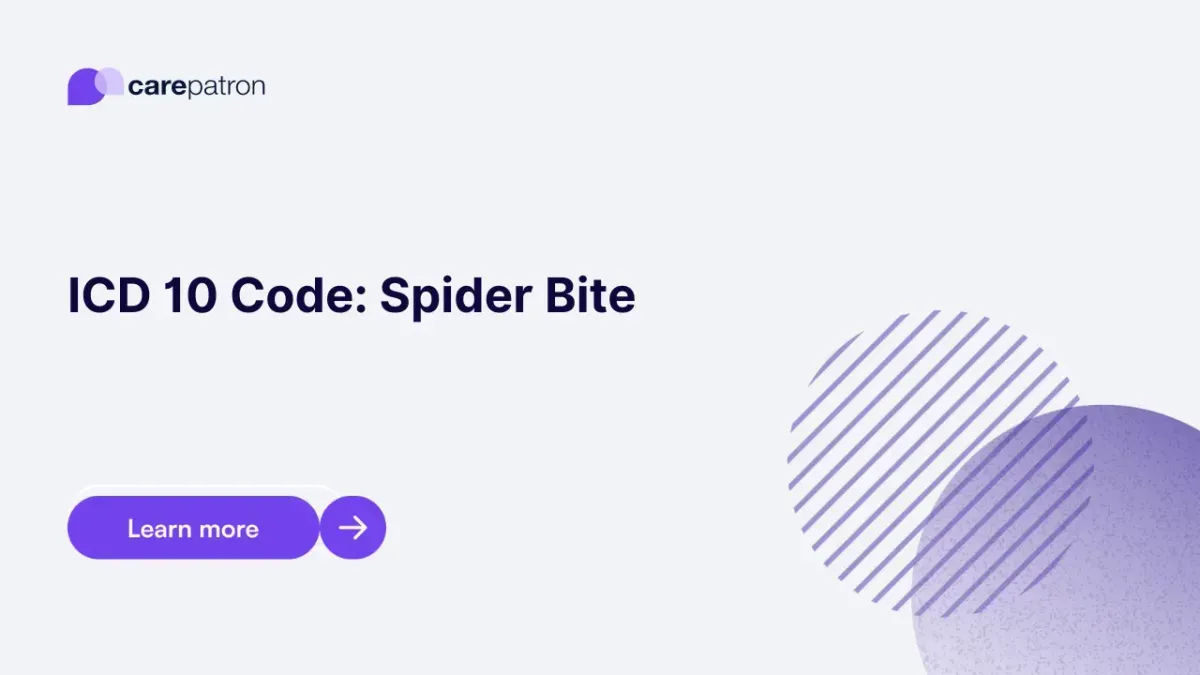
Spider Bite ICD-10-CM Codes
Understand the crucial ICD-10 codes for diagnosing and documenting spider bites, ensuring precise clinical reporting and billing practices.
Use Code
Commonly asked questions
Use a spider bite ICD code when a patient presents with spider bite symptoms, such as swelling, redness, itching, or more severe symptoms like abdominal pain or fever.
Treatment usually involves managing symptoms, removing the spider venom if possible, and, in severe cases, administering antivenom.
A diagnosis code for a spider bite enables healthcare providers to accurately document the condition for administrative, epidemiological, and clinical purposes. It aids in tracking the incidence and prevalence of different types of spider bites and their respective treatments.
EHR and practice management software
Get started for free
*No credit card required
Free
$0/usd
Unlimited clients
Telehealth
1GB of storage
Client portal text
Automated billing and online payments
